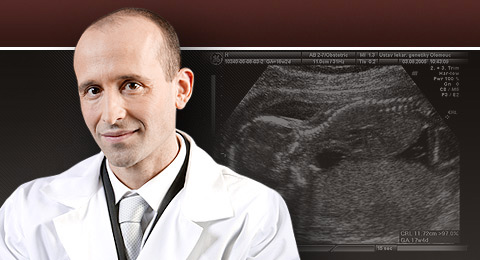Ľubušký M., Procházka M., Krejčová L., Větr M., Šantavý J., Kudela M. Prevention of Rh (D) alloimmunization in Rh (D) negative women in pregnancy and after birth of Rh (D) positive infant. Čes. Gynek., 2006, 71 (3), s. 173-179.
ABSTRACT
Objective: The objective of this review was to assess the effects of antenatal anti-D immunoglobulin on the incidence of Rhesus D alloimmunisation when given to Rh-negative women without anti-D antibodies and assess the effects of giving anti-D to Rhesus negative women, with no anti-D antibodies, who had given birth to a Rhesus positive infant.
Design: A review article
Setting: Department of Obstetrics and Gynecology, Department of Medical Genetics and Fetal Medicine, University Hospital, Olomouc, Ministry of Health, Czech Republic.
Subject and Method: We searched the Cochrane Pregnancy and Childbirth Group trials register, refence lists of relevant articles and bibliographies.
Conclusion: The risk of Rhesus D alloimmunization during or immediately after a first pregnancy is about 1%. Administration of 100 µg (500 IU) anti-D to women in their first pregnancy can reduce this risk to about 0.2% without, to date, any adverse effects. Anti-D, given within 72 hours after childbirth, reduces the risk of RhD alloimmunisation in Rhesus negative women who have given birth to a Rhesus positive infant. However the evidence on the optimal dose is limited.
Key words: anti-D, Rhesus alloimmunization


Contact
Professor Marek Lubusky, MD, PhD, MHA
THE FETAL MEDICINE CENTRE
Department of Obstetrics and Gynecology
Palacky University Olomouc, Faculty of Medicine and Dentistry
University Hospital Olomouc
Zdravotníků 248/7, 779 00 Olomouc, Czech Republic
Tel: +420 585 852 785
Mobil: +420 606 220 644
E-mail: marek@lubusky.com
Web: www.lubusky.com


